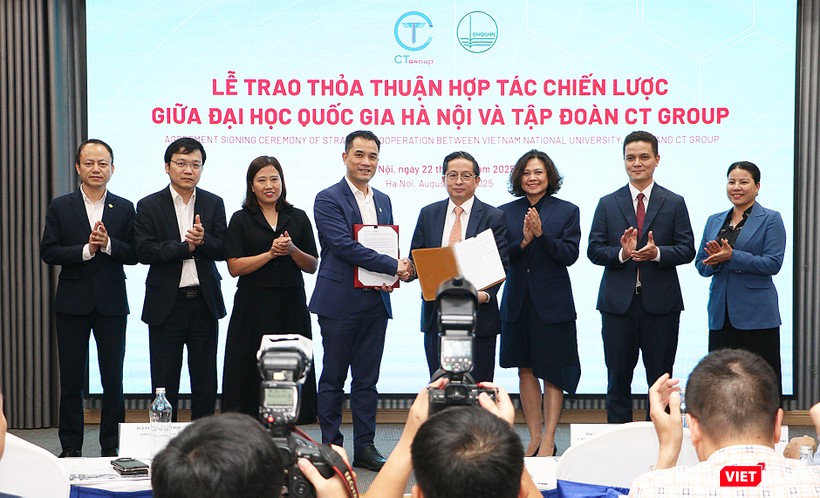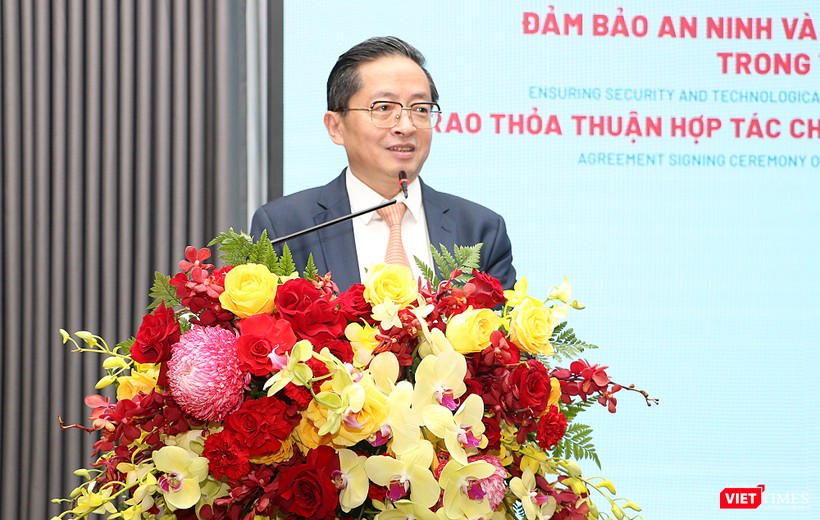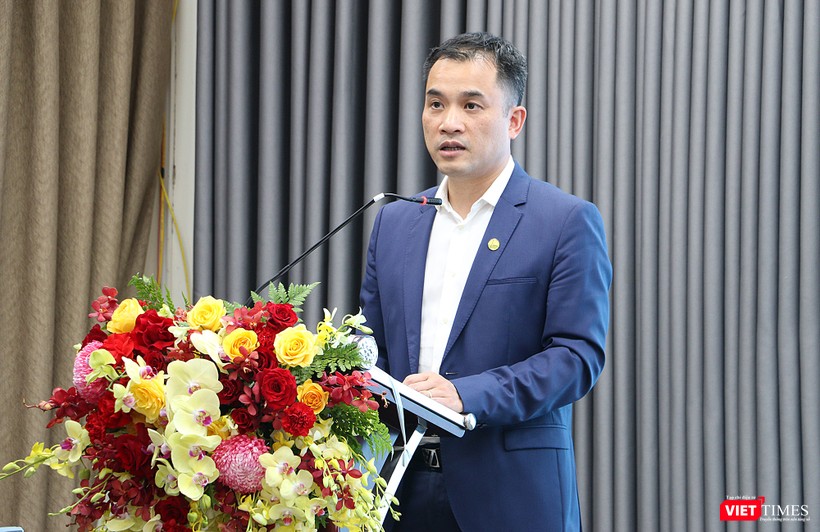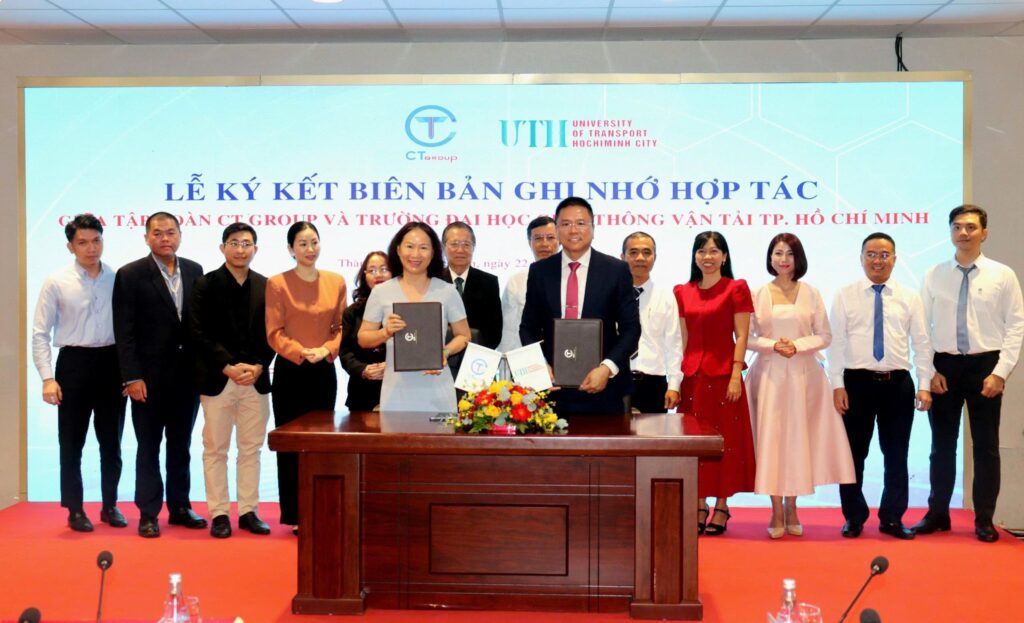On August 22, Vietnam National University, Hanoi (VNU) and CT Group signed a strategic cooperation agreement with the goal of mastering semiconductor technology.

Representatives of VNU and CT Group signed the agreement
Speaking at the signing ceremony, CT Group Chairman Tran Kim Chung emphasized the urgency of independence and autonomy in science and technology. According to him, Vietnam’s complete dependence on foreign chips could expose the country to risks of disruption and data leakage amid the robust digital transformation process – particularly during the transition to a digital twin environment, when the volume of data and devices surges dramatically.
Mastering the technology for designing, manufacturing, and commercializing semiconductors is not only a task for science and technology but also an urgent requirement for national security.

Chairman of CT Group Tran Kim Chung emphasized the urgency of independence and autonomy in the semiconductor industry
Mr. Chung proposed the establishment of an independent, self-reliant, and robust semiconductor industry, with a focus on developing fewer than ten essential types of chips – such as MCU microprocessor chips, AI chips, IoT chips, and telecommunications and satellite frequency chips – to serve both defense and security needs as well as civilian applications. The advancement of domestically developed chips would also contribute to positioning Vietnam as the semiconductor hub of Southeast Asia while enhancing its competitiveness in the global market.
According to Associate Professor Dr. Pham Bao Son, Vice President of Vietnam National University, Hanoi (VNU), the signing of the cooperation agreement between VNU and CT Group marks a strategic milestone, embodying the spirit of collaboration, innovation, and development among the State, universities, and enterprises. The partnership is aimed at fostering applied research, innovation, and the training of high-quality human resources.
With more than 5,000 staff and lecturers, including nearly 500 professors and associate professors, 1,600 PhDs, and a network of leading laboratories and research institutes, VNU is a multidisciplinary center of education and research that exceeds international standards. The university has been a pioneer in implementing Resolution 57, establishing a high-tech park, and founding institutes dedicated to semiconductor technology, quantum science, and artificial intelligence, while also developing numerous research outputs for technology transfer to the market.
The four pillars of cooperation outlined in the agreement include: Training high-quality human resources in close connection with industry practices; Research and technology transfer in semiconductors, unmanned aerial vehicles (UAVs), AI, smart cities, and clean energy; Supporting innovation-driven startups Implementing corporate social responsibility programs such as scholarships, community development, and environmental protection.

Assoc.Prof. Dr. Pham Bao Son outlined four pillars of cooperation
According to Assoc. Prof. Dr. Pham Bao Son, the “triple helix” cooperation model between the state – universities – enterprises will be the mechanism to accelerate science and technology objectives, ensure security and autonomy in semiconductor chip technology, and contribute to the successful implementation of the national digital transformation.
Both parties also proposed cooperation in establishing a chip testing laboratory and developing sim chips for unmanned aerial vehicles, contributing to ensuring security, certification, and efficient operation of the UAV network – a high-tech field in which CT Group has achieved its first international export contract.






